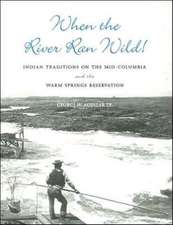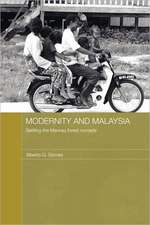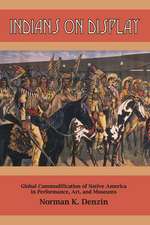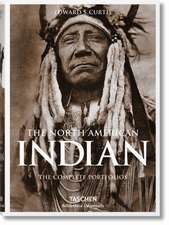Redskins?: Sport Mascots, Indian Nations and White Racism: New Critical Viewpoints on Society
Autor James V Fenelonen Limba Engleză Paperback – sep 2016
| Toate formatele și edițiile | Preț | Express |
|---|---|---|
| Paperback (1) | 341.16 lei 6-8 săpt. | |
| Taylor & Francis – sep 2016 | 341.16 lei 6-8 săpt. | |
| Hardback (1) | 1214.15 lei 6-8 săpt. | |
| Taylor & Francis – 29 aug 2016 | 1214.15 lei 6-8 săpt. |
Din seria New Critical Viewpoints on Society
-
 Preț: 325.02 lei
Preț: 325.02 lei -
 Preț: 287.42 lei
Preț: 287.42 lei -
 Preț: 340.98 lei
Preț: 340.98 lei -
 Preț: 343.83 lei
Preț: 343.83 lei -
 Preț: 284.78 lei
Preț: 284.78 lei - 30%
 Preț: 1014.74 lei
Preț: 1014.74 lei -
 Preț: 304.27 lei
Preț: 304.27 lei -
 Preț: 340.17 lei
Preț: 340.17 lei -
 Preț: 352.59 lei
Preț: 352.59 lei -
 Preț: 341.74 lei
Preț: 341.74 lei -
 Preț: 385.54 lei
Preț: 385.54 lei - 16%
 Preț: 241.30 lei
Preț: 241.30 lei -
 Preț: 384.86 lei
Preț: 384.86 lei -
 Preț: 328.95 lei
Preț: 328.95 lei -
 Preț: 356.45 lei
Preț: 356.45 lei -
 Preț: 348.77 lei
Preț: 348.77 lei -
 Preț: 377.84 lei
Preț: 377.84 lei -
 Preț: 356.75 lei
Preț: 356.75 lei -
 Preț: 389.96 lei
Preț: 389.96 lei -
 Preț: 388.13 lei
Preț: 388.13 lei -
 Preț: 349.80 lei
Preț: 349.80 lei -
 Preț: 435.77 lei
Preț: 435.77 lei - 25%
 Preț: 994.58 lei
Preț: 994.58 lei -
 Preț: 347.91 lei
Preț: 347.91 lei -
 Preț: 362.82 lei
Preț: 362.82 lei -
 Preț: 323.23 lei
Preț: 323.23 lei -
 Preț: 377.84 lei
Preț: 377.84 lei
Preț: 341.16 lei
Nou
Puncte Express: 512
Preț estimativ în valută:
65.29€ • 70.89$ • 54.84£
65.29€ • 70.89$ • 54.84£
Carte tipărită la comandă
Livrare economică 22 aprilie-06 mai
Preluare comenzi: 021 569.72.76
Specificații
ISBN-13: 9781612057408
ISBN-10: 1612057403
Pagini: 172
Ilustrații: 70
Dimensiuni: 152 x 229 x 10 mm
Greutate: 0.25 kg
Ediția:1
Editura: Taylor & Francis
Colecția Routledge
Seria New Critical Viewpoints on Society
Locul publicării:Oxford, United Kingdom
ISBN-10: 1612057403
Pagini: 172
Ilustrații: 70
Dimensiuni: 152 x 229 x 10 mm
Greutate: 0.25 kg
Ediția:1
Editura: Taylor & Francis
Colecția Routledge
Seria New Critical Viewpoints on Society
Locul publicării:Oxford, United Kingdom
Public țintă
General, Postgraduate, and UndergraduateCuprins
Foreword by Joe R. Feagin
Opening Statement (Preface)
List of Graphics and Illustrations
1 - Introduction – Redskins, Wahoos and Racism thru the Ages
2 - Racist Formulation and the Indian as Red Man
3 - Redskin – Race and Systemic Racism in Sociolinguistic Analysis
4 - Surveying the Landscape of Racist America
5 - Cleveland Indians and Washington Redskins Surveys
6 - Legal Histrionics and the Legacy of Racism
7 - The Red Man plays on (in America)
References and Sources
Opening Statement (Preface)
List of Graphics and Illustrations
1 - Introduction – Redskins, Wahoos and Racism thru the Ages
2 - Racist Formulation and the Indian as Red Man
3 - Redskin – Race and Systemic Racism in Sociolinguistic Analysis
4 - Surveying the Landscape of Racist America
5 - Cleveland Indians and Washington Redskins Surveys
6 - Legal Histrionics and the Legacy of Racism
7 - The Red Man plays on (in America)
References and Sources
Notă biografică
James V. Fenelon is Professor of Sociology and Director of the Center for Indigenous Peoples Studies at California State University, San Bernardino. His publications include Culturicide, Resistance, and Survival of the Lakota and (with co-author Thomas Hall) Indigenous Peoples and Globalization. He is Standing Rock Lakota/Dakota and has taught internationally, on social justice topics.
Recenzii
In this provocative and pathbreaking book the savvy sociologist, James Fenelon, demonstrates well that a great many white Americans are still unwilling to listen and continue to harbor a deeply racist framing of themselves as racially superior and of Native Americans as racially inferior--and thus as a deserving target for an array of racially discriminatory actions. --Joe R. Feagin, Texas A&M University, from the Foreword
With extraordinary precision and colorful prose, Lakota scholar James Fenelon analyzes the use of Native American mascots by sports teams in modern society. He interrogates the pejorative use of team names, first circling in on the Washington Redskins then radiating out into many related spheres, tying team names to racism, colonialism, ignorance, and capitalism. National and international audiences will be interested in this captivating and persuasive narrative. --Clifford E. Trafzer, Rupert Costo Chair in American Indian Affairs, University of California, Riverside
Redskins? digs broadly, deeply, intricately into the dark side of American consciousness and racism toward American Indians. The American Indian position is presented relentlessly, passionately, and supported with direct experience, Indigenous sensibilities, as well as strategic scholarly engagement. -- Duane Champagne, Professor of Sociology and American Indian Studies, UCLA
With extraordinary precision and colorful prose, Lakota scholar James Fenelon analyzes the use of Native American mascots by sports teams in modern society. He interrogates the pejorative use of team names, first circling in on the Washington Redskins then radiating out into many related spheres, tying team names to racism, colonialism, ignorance, and capitalism. National and international audiences will be interested in this captivating and persuasive narrative. --Clifford E. Trafzer, Rupert Costo Chair in American Indian Affairs, University of California, Riverside
Redskins? digs broadly, deeply, intricately into the dark side of American consciousness and racism toward American Indians. The American Indian position is presented relentlessly, passionately, and supported with direct experience, Indigenous sensibilities, as well as strategic scholarly engagement. -- Duane Champagne, Professor of Sociology and American Indian Studies, UCLA
Descriere
This book assesses the controversies over the Washington NFL team name as a window into other recent debates about the use of Native American mascots for professional and college sports teams. Fenelon explores the origin of team names in institutional racism and mainstream society’s denial of the impact of four centuries of colonial conquest. Fenelon’s analysis is supported by his surveys and interviews about the "Redskins" name and Cleveland "Indians" mascot "Chief Wahoo." A majority of Native peoples see these mascots as racist, including the National Congress of American Indians—even though mainstream media and public opinion claim otherwise. Historical analysis divulges these terms as outgrowths of "savage" and "enemy icon" racist depictions of Native nations. The book ties the history of conquest to idealized claims of democracy, freedom, and "honoring" sports teams.











